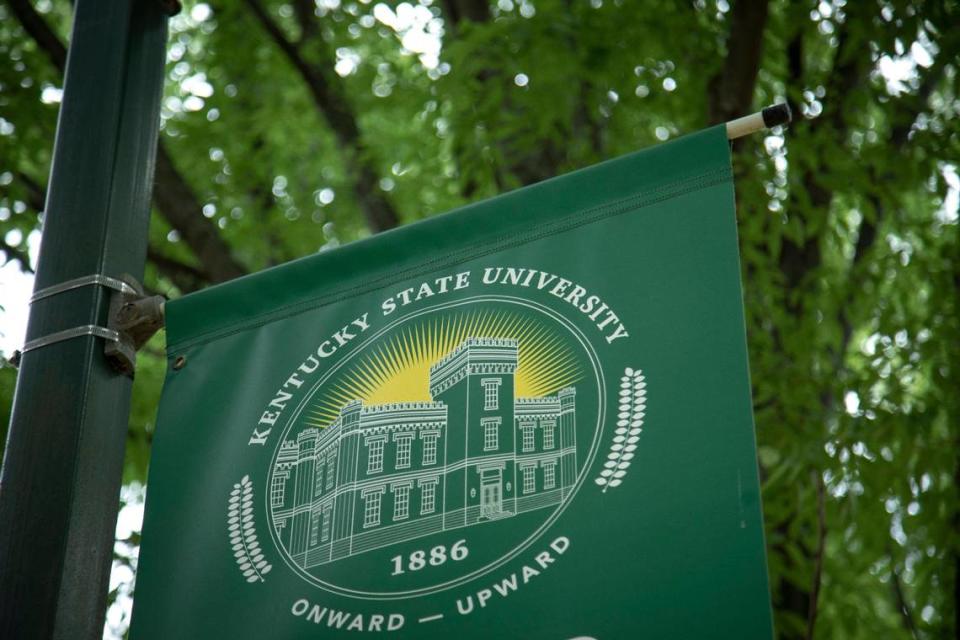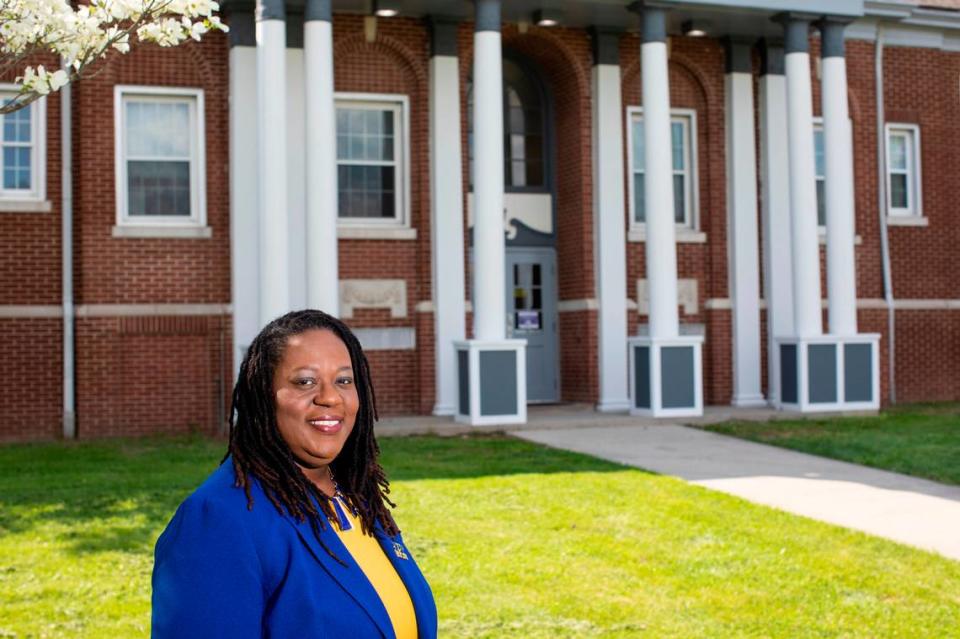Kentucky State University is a state treasure. We must do all we can to save it.
Scene from ABC hit show “The Good Doctor” featuring an African mother talking to the doctor about how she regrets sending her daughter to live with an American family:
“I made a huge sacrifice letter her to stay in America. Those people turned her against me. I never thought she would be so ungrateful. But that’s my fault. I let her go.”
The doctor’s reply: “You gave her up out of love. Don’t let regret blind you from seeing how wonderful she is. As for the people that made her that way, be grateful for all the sacrifice they made.”
Later in the episode, the mother shared with her daughter that “I gave my heart and grew to hate the people who took it. But without their love and sacrifice, you would not be the amazing girl that you are and I love them for that.”
Final scene, the daughter states: “Maybe where I came from has a little bit to do with how great I am.”
Public education has been called “The Great Equalizer” because it has been shown to reduce poverty in America. The integration of African American in public schools and questions about the quality of that education have been civil right issues since the Brown vs. Board of Education case in 1954. In this article, we want to extend the conversation to focus on the experiences of African American post-slavery and pre-integration of public education. More specifically, this article is in response to the recent conversations about the challenges and importance of Kentucky State University (KSU), the only public Historically Black College and University (HBCU) in Kentucky.
HBCUs were designated in the Title III of the Higher Education Act of 1965 as higher education institutions that were established before 1964 for the purpose of educating Black Americans who were denied access to other public universities like the University of Kentucky. Dr. Michael Lomax, the President of the United Negro College Fund (UNCF), addressed the need of HBCUs by pointing out that they represent 3% of the colleges in the United States but produce approximately 25% of the Black graduates. Despite that many of the Black graduates overcame specific challenges like coming from low-income families, being first-generation college students, and entering academically underprepared for college.
KSU was the only higher education institution created in Kentucky to prepare Black educators who would teach in its segregated public schools. It has continued to provide access to higher education for mostly Black, low-income, and otherwise marginalized students across Kentucky. As a result, KSU has consistently required significant resources to meet the needs of their students. According to 2019-2020 data provided by the Kentucky Council on Postsecondary Education (CPE), slightly over 50% of the student population at Kentucky State University (51.5%) identify as Black compared to 7.12% of students at University of Kentucky (UK) and 11.93% at University of Louisville (UofL). Therefore, Black Kentuckians who desire a higher education degree are more likely to be accepted and attend KSU.
Not only does KSU enroll more Black students, it employs more staff and faculty who are considered underrepresented minorities. The 2019-2020 data provided by CPE show that approximately 70% of staff and 45% of faculty come from underrepresented minority groups or people of color (compared to 13% staff and 10% faculty at University of Louisville). Although, UK and UofL have stated diversity commitments, the most racially diverse higher education institution in the state of Kentucky is KSU.
The scene described at the beginning of this article triggered my thoughts about the experiences of Blacks in America whose ancestors survived of chattel slavery. Although these Africans came to America involuntarily, they share a desire with others who come to America, to realize the dream of a quality education. My interpretation of the scene is that the African mother’s desire for a quality education was more salient than the desire for her daughter to remain connected to African culture. As a Black person in America who made the decision to pursue a college degree at a non-HBCU under the guise of receiving a more quality education, I know that it came at a cost.
As a professor at KSU, I felt pride witnessing the large number of Black students on the campus. I now encourage others to attend HBCUs. My daughter (who recently transferred after two years at UofL), says as a current KSU student: “I feel included and supported by the people around me; I knew I would be cared for at my new school; I can strive academically because I have personalized classes with professors who are my role models.” My son plans to attend a HBCU because “unlike high school, I want to be comfortable being my authentic self and not worry about battling stereotypes and microaggressions every day.”
For the future success of the Commonwealth, we need to do all that is necessary to save our public HBCU-Kentucky State University — affectionately called “Frankfort’s University.”
Dr. Shambra Mulder is a parent stakeholder and former professor at Kentucky State University.


